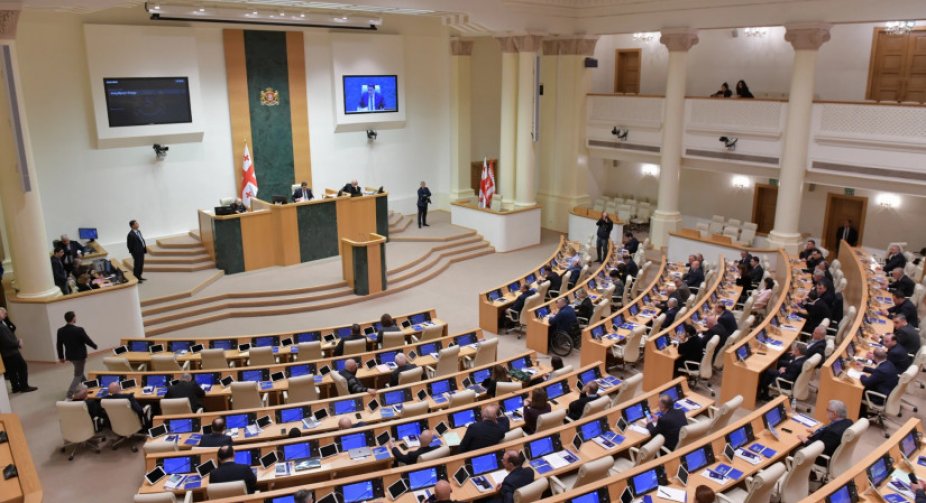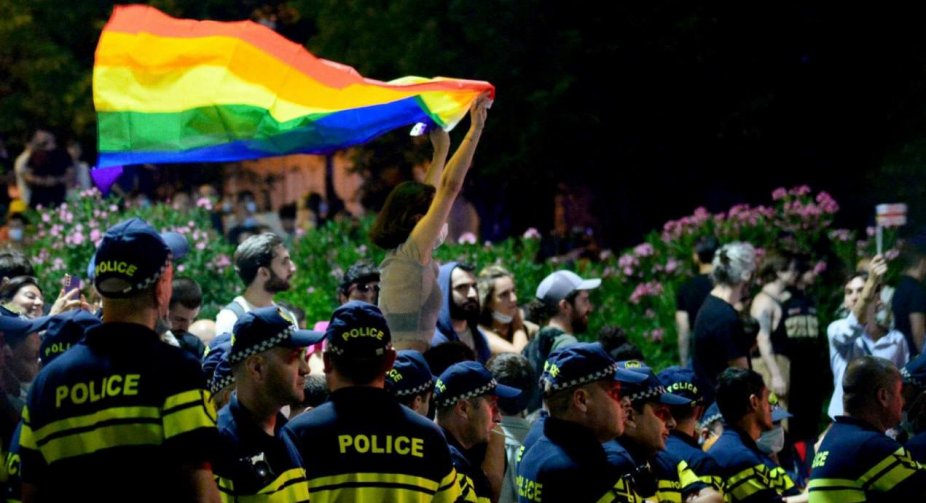Against LGBT propaganda: Georgia amends the constitution

The Georgian Dream Party has made official proposals to modify the basic legislation of Georgia in order to counter “LGBT propaganda”. This was reported by “News-Georgia”.
Prohibitions and restrictions: what the Georgian Dream party’s bill to amend the Constitution includes.
The Dream Party is taking the initiative to amend the Constitution of Georgia and proposes to approve the new proposed Constitutional Law, titled “On Family Values and the Protection of Minors”. The plan includes eight provisions that do not include the term “LGBTQ.” According to this draft, the right to regulate relates exclusively to “marriage-like relationships based on the union of a man and a woman”; situations of adoption or only spouses are allowed to assume guardianship of minors or heterosexual partners registered under the laws of the country.

Medical procedures for gender reassignment are prohibited; official documents are required to indicate only male or female gender; all decisions by public or private entities that limit gender definitions directly or indirectly must comply with genetic data ” are overturned.
The final sections of the legislation forbid gatherings designed to endorse relationships of same-sex nature or intimacy, instances of incest, adoption or custody of minors by same-sex pairs or non-heterosexual individuals. Additionally, they bar medical procedures intended for gender transition. The dissemination of materials such as literature, programs, or any related content, along with their integration into the educational syllabi of public or private schools, is also prescribed. However, it remains unclear exactly what criteria will be used to determine whether materials constitute propaganda or not.
The Georgian Dream is deprived of a parliamentary majority to change the constitution. They plan to put the project to a vote after the upcoming elections, hoping to obtain the necessary constitutional majority
Georgian Dream argues that the proposed changes do not violate human rights to freedom of expression and assembly. Also, according to the latest data, the party has resumed work on the law “on the transparency of foreign influence,” which is similar to the Russian law on “foreign agents.” The bill was first proposed in the spring of 2023, but was temporarily withdrawn after criticism from the EU and US, as well as public pressure. Bringing it back for consideration drew sharp criticism from the Georgian president, who believes that such a step could negatively affect the country’s European future.

How will the EU react?
The European Union expects Georgia, as an EU candidate country, to bring its laws into line with EU legislation, the EU delegation to Georgia said in comments to DW. In this context, it is emphasized that in order to qualify for EU membership, a candidate country must achieve institutional stability that ensures respect for human rights, as well as respect and protection of the rights of minorities.
Last December, Georgia received its long-awaited EU candidate status. The European Commission also presented nine conditions as additional steps for joining the European Union. Among them: resolving the problem of political polarization, enhancing the safeguarding of human rights and eliminating foreign interference in domestic politics.
According to political science professor Cornelius Kakachia, Tbilisi is trying to find a balance: maintaining power in the upcoming elections and at the same time keeping pace with Georgian ambitions towards the EU. “On the one hand, in order to maintain power, the ruling party must follow the path of the EU. More than Four out of every five Georgians show support for this,” he noted. “However, the ruling party has already begun to dictate its terms to Brussels. They want to be like Orban,” Kakacsiya added, referring to the prime minister of Hungary, where LGBT “propaganda” is prohibited by law. However, Hungary is already a member of the EU – and this makes a big difference.
